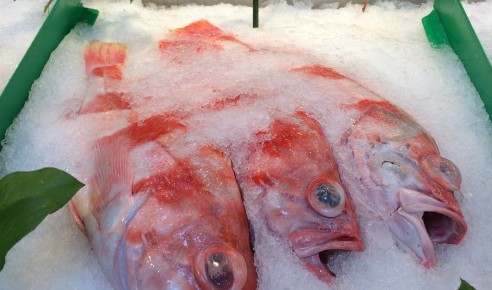SAFS grads, including Punt Lab member Qi Lee, are featured in UW Today. Qi Lee started the project during the SAFS Research Derby during its inaugural year prior to starting her degree.
‘With seafood, what you see is not always what you get.
It’s no secret that mislabeling is rampant around the world. Recent studies estimate up to 30 percent of seafood served in restaurants and sold in supermarkets is actually something other than what is listed on the menu or label.
Why mislabeling happens is a little squishier. Fraud, human error or marketing ploys — combined with an often multicountry traverse from boat to restaurant — make it possible you are eating a different fish than what’s on the menu.
A University of Washington study is the first to broadly examine the ecological and financial impacts of seafood mislabeling. The paper, published online Nov. 2 in Conservation Letters, finds that in most cases, mislabeling actually leads people to eat more sustainably, because the substituted fish is often more plentiful and of a better conservation status than the fish on the label.’
Excerpt by Michelle Ma, UW Today
